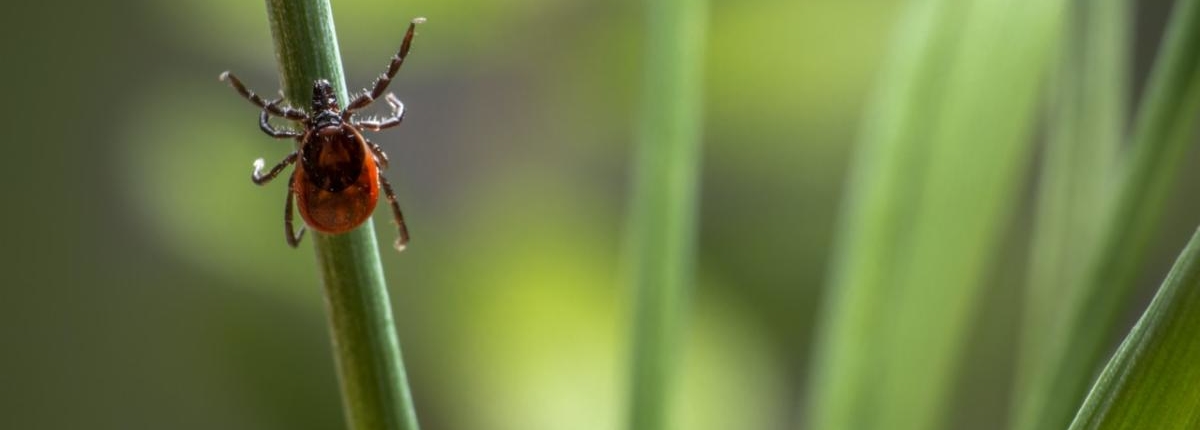How to remove a tick from your body:
Rosemary & Peppermint Essential Oils
In this 2013 study researchers compared an insecticidal product made from rosemary and peppermint oils, to a commercial acaricidal product. Both products were applied in separate patches within the test area during nymphal and adult season peaks. Both products reduced the population of Ixodes scapularis ticks to zero, with effects lasting 6 months after application. What’s even better, the rosemary and peppermint oil product did not disturb foliage or presence of bees or other pollinating insects.
Cedarwood Oil
Clove & Citronella
This 2017 study compared a number of different oils and their ability to repel ticks. Researchers found that a concentration of 3% clove oil was 82% effective at repelling Dermacentor reticulatus ticks. Results were even better when researchers combined thyme and citronella (1.5% of each) in a solution, which had 91% effectiveness at repelling the ticks studied.
Combination Essential Oil Products
Check Out Our Favorite Products!
- Nantucket Spider – They have several natural bug repellent products including a line for kids, summer camp, dogs and extra strength tick repellent.
- Taspen’s Organic Bug BEE Gone – A local Colorado company with a great line of natural bug sprays.
- Quantum Health Buzz Away Extreme Spray – Another great DEET-free bug spray made with essential oils.
- Make your own natural bug spray with this recipe from Wellness Mama!
Keep the Bugs Away- More Helpful Tips
- With essential oil insect repellents you will need to reapply the solution every few hours to maintain protection.
- Stay on the trails when hiking to avoid tall grasses and brush areas. This reduces chance of ticks hitching a ride on you and also helps preserve the fragile ecosystem.
- Remove clothing and shower soon after coming in from outdoor activities.
- Wear light colored clothing to make it easier to see and remove ticks quickly.
- If sitting outside, use a fan to deter mosquitos from landing.





